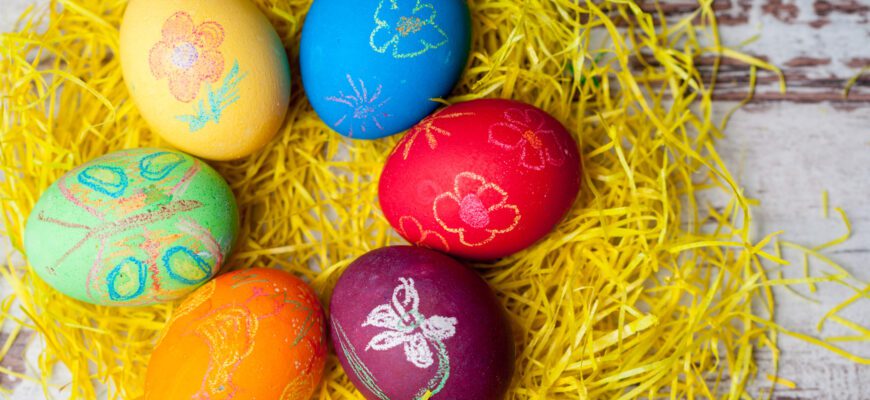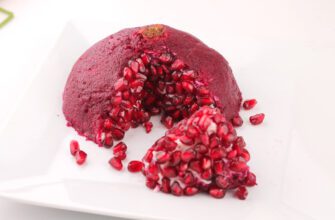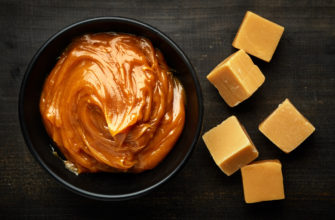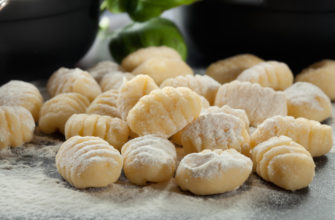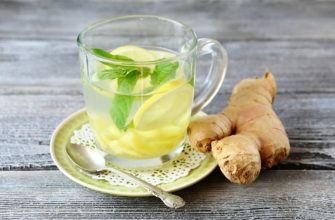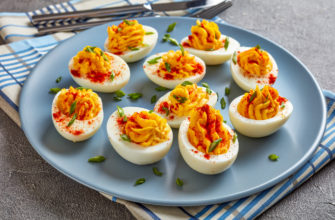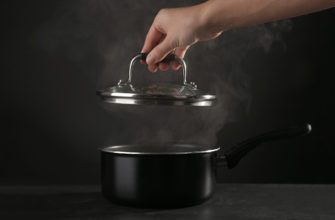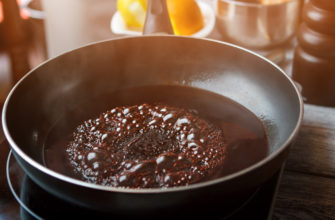Preparing Easter eggs looks easy…but some things are easier said than done!
The biggest dilemma when making Easter eggs is overcooking. Overcooked eggs form a dark green color around the yolk and have a sulfuric taste.
But don’t fret. You can get the best Easter eggs when you take care of a few simple things.
So, if you have been wondering how long to boil eggs for Easter eggs so they are perfect, we have the answer.
Tips To Keep in Mind when Boiling Eggs for Easter
Many people think Easter egg preparation starts with putting the eggs into boiling water. But, in reality, it starts when you buy your eggs.
If you plan to make Easter eggs ahead of time, you must buy them in advance, too. This is because older eggs are easier to peel. So, buy your eggs a week or two before you boil them.
Store the eggs in the refrigerator, as they can go bad. But remove them from the fridge and bring them to room temperature before putting them in hot water. This is important because a sudden change in the temperature of the eggs will put pressure on the shells, making them crack.
Additionally, remember to refrigerate the eggs after boiling, as they can also go bad if left out.
There is one more age-old method to prevent eggs from cracking. As mentioned earlier, eggs crack due to increased pressure. When eggs boil, the air inside the shell gets heated, expands and pushes against the shell, cracking it.
Hence, to prevent cracking, find an escape for the heated air. To do so:
- Determine the round part (which has a larger base) of the egg.
- Take a pin and prick a tiny hole at the bottom of the round base.
This hole is an escape route for the heated air. Now, when the air expands, it will have a passage to go through and will not exert pressure on the egg’s shell.
How Long to Boil Eggs for Easter Eggs
To boil eggs, follow these simple steps:
1. Fill 2/3 of a saucepan with water and put it on the stove. The pan should be large enough to hold all the eggs in a single layer, and the water level must be an inch or two above the eggs.
2. Switch on the stove and keep the heat at its highest.
3. Once the water has started to boil, lower the eggs into the saucepan with the help of a strainer.
4. Lower the flame, and let the eggs simmer for 10–12 minutes.
5. Transfer the eggs to cold water, and let them stay in it as long as they are easy to hold.
6. Dye and decorate as you like.
Now, the eggs are perfect. The yolks will not have the undesired greenish tint, and the whites will not be rubbery.
However, you will have to vary the time stated above according to the number of eggs and other factors.
So, if you have questions, such as, “How much time will it take to boil 6–12 eggs?” or “How long to boil 3 dozen eggs?”, we have a chart prepared to answer your questions.
The more eggs you boil at once, the longer it will take.
| Number of eggs | Time needed for boiling |
| 1–4 | 10–12 minutes |
| 5–8 | 12–14 minutes |
| 9–12 | 15–18 minutes |
| 2 dozen | 20–30 minutes |
| 3 dozen | 20–30 minutes |
Also, the time it takes to boil eggs depends on several other factors, like the size of the eggs, the shape of the pan, the altitude and the ratio of water to eggs.
Hence, the above-mentioned time is not constant, so expect a few minutes more or less.
Time taken according to size:
| Egg size | Cook time |
| Medium eggs | 12 minutes |
| Large eggs | 15 minutes |
| Extra large eggs | 18 minutes |
Wondering how long to hard boil Easter eggs? Here are a few tips to help you boil and peel your eggs to perfection:
- Add half a teaspoon of salt to the water, which reduces the risk of cracking and makes the eggs easier to peel.
- Add a teaspoon of vinegar, which prevents the egg white from running out of the shell in case the egg cracks while cooking.
You can use both tips separately or add both ingredients to the water.
Here are a few more tricks to help you achieve your goal more professionally.
Test to Ensure Your Egg Is Done
When researching how long to boil Easter eggs, you will get such varied answers that you will be more confused than when you started. So, then…how do you go about it?
It’s simple: test the egg to find out if it is completely boiled or not. Here are a few ways to do that:
- Hold the boiled egg and shake it from side to side. If the egg is completely boiled, it will feel like a solid substance – like a rock. But if you feel liquid sloshing inside, you need to boil the egg more.
- Spin the egg and manually stop it with your fingers. If the egg is hard-boiled, it will immediately come to a halt. But if it continues to circle or wobble around, the egg still has some liquid and needs further cooking.
- Take the egg to a dark spot and shine a flashlight through it. If the egg is dark inside, it is cooked, but if it lights through like a lantern, it is undercooked.
Conclusion
The secret to the best hard-boiled egg for Easter lies in the duration of boiling. While you do not want your egg to be liquid, an overcooked egg is also undesirable. So, follow these pointers, and boil your egg for just the right time!

